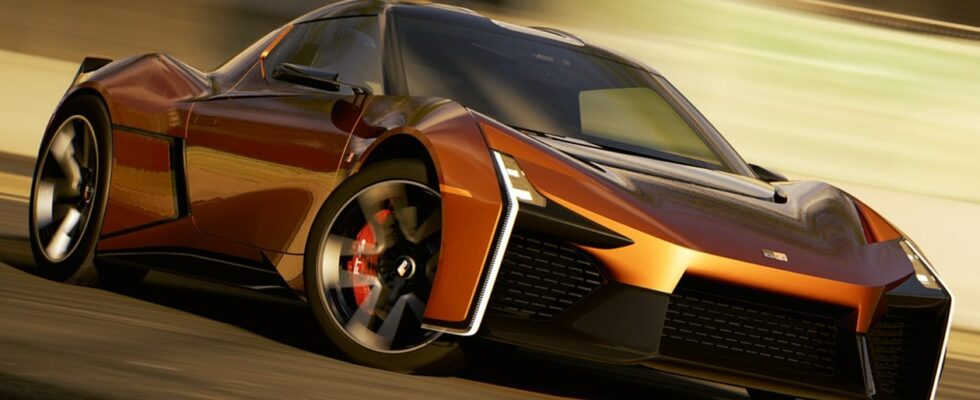Two new electric cars, a new entry-level Lexus and a newly renovated range of commercial vehicles – the Toyota Group wants to attack on a broad front in Europe. In addition to next-generation batteries, hydrogen also remains an issue, as the Japanese emphasized at the annual presentation of their plans in Brussels.
While the world’s largest car manufacturer was recently a latecomer when it came to e-mobility, it now wants to become a trendsetter in the small battery SUV segment. In Brussels, the group showed the “Urban SUV Concept” study, which is already close to series production, with an angular off-road look and an all-wheel drive option, which is supposed to score points with a variable interior despite its short length. The group expects high demand in the so-called B-SUV segment wants to repeat the success of the Yaris Cross electrically. Details about the model name, technology and costs are not yet known, but the series model should not be positioned as a price breaker, even if it adapts to the needs and wallets of the customer thanks to two battery options. The Japanese initially want Citroen to play the role of budget electric car e-C3, VW ID.2 and Renault R5, which are in the range of 25,000 euros or even less. Six new electric vehicles by 2026. The same applies to the “Sports Crossover Concept” that was also presented. The elongated, coupé-like five-door model is set to become the brand’s electric flagship when it comes onto the market by 2026. Together with the already available bZ4X, the slightly smaller compact SUV announced in 2022 and the Urban SUV, it is part of a sextet of electric cars that will be on Europe’s roads in the next three years. The emission-free offer is completed by the E variants of the Pro Ace, Pro Ace City and the Pro Ace Max vans purchased from Stellantis and the newly added Pro Ace Max. The vans will receive an extensive overhaul in terms of appearance and interior ambience for the coming year. This is intended to help increase commercial vehicle sales on the continent from 119,000 units to 140,000 vehicles in the coming year. Outlook for an electric sports car For the emotions, Toyota has brought the “GR FT-Se Concept” to Brussels, a fully electric high-performance sports car. The 4.38 meter long two-door car is only 1.22 m high. The concept vehicle was developed together with the motorsport department Toyota Gazoo Racing and has already been presented at the Japan Mobility Show 2023 in Tokyo. Special new batteries with a lower overall height and higher energy density are intended to provide outstanding performance in conjunction with smaller and lighter components such as the engine, transmission and air conditioning Properties in terms of cornering behavior, handling and deceleration ensure. Lexus is still hesitant. However, the group does not want to commit itself entirely to battery-powered e-mobility in Europe either. The most important innovation at premium subsidiary Lexus is the mini crossover LBX, a refined variant of the hybrid model Yaris Cross, which, with prices starting at 33,000 euros, is around 10,000 euros cheaper than the brand’s next most expensive model. The first new battery car is not announced until 2026. Until then, the Lexus RZ, an offshoot of the Toyota bZ4X, has to do the trick. At least a front-wheel drive variant has been announced for next year. Solid-state battery from 2027 The Japanese’s big battery offensive at both Lexus and Toyota is only expected after 2026, when the next generation of lithium-ion battery technology goes into production. Among other things, a cheap LFP variant has been announced that will undercut the costs of the batteries currently used by 40 percent. A high-performance version with more than 1000 kilometers is also planned. Last but not least, it should make e-mobility practical in regions with poor charging infrastructure. After 2027, Toyota wants to go into series production with an extremely quickly rechargeable solid-state battery. Third generation of hydrogen drive At the same time, the company remains loyal to fuel cells. The third generation of the technology is scheduled to start in 2026 and will be marketed in Europe by the specially founded Hydrogen Fuel Factory. The Japanese explicitly emphasize that fuel cells will also have a future in cars. In the domestic market, for example, the Crown premium sedan is now being launched in a “Fuel Cell” version. In addition, hydrogen technology is to be promoted in the commercial vehicle segment, both in heavy trucks and light models. The developers are currently working on an H2 version of the Hilux, which was shown as a prototype in Brussels. If test feedback is positive, a series model could follow. In general, the group remains true to its multi-technology approach, but is focusing on electrification, especially in Europe. In the coming year, the share of electric and hybrid models in sales is expected to rise from the current 71 to 75 percent. By 2026, the plan is to increase the share of battery-electric vehicles to over 20 percent, which corresponds to around 250,000 units. Toyota is aiming for a complete CO2 reduction in new vehicles by 2035 and complete CO2 neutrality of the entire value chain and logistics by 2040. (SPX)
source site-13
